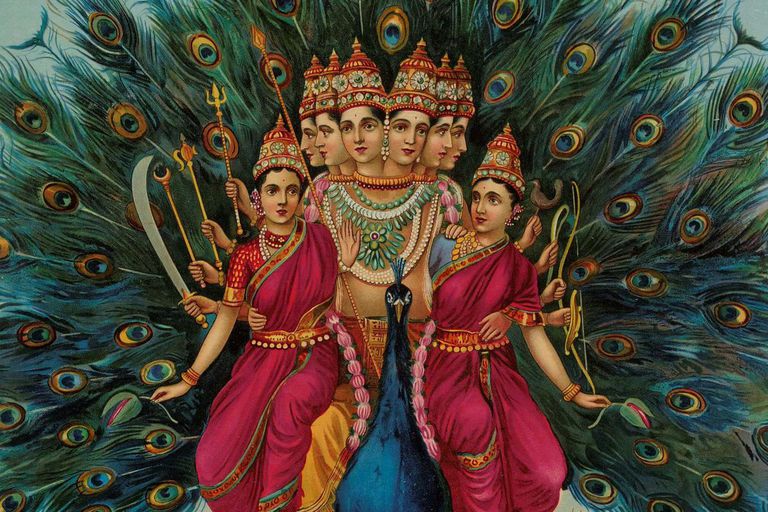All Besha Of Shri Jagannath Mahaprabhu
Radha-Damodar Besha
MAHAPRABHU SHREE JAGANNATH (BAPA) IS ABSOLUTE TRUE,
OTHER THAN HIM ARE RELATIVELY TRUE….
OTHER THAN HIM ARE RELATIVELY TRUE….
Radha-Damodar Besha :
The auspicious Radha Damodar Besha of the deities in Mahapravu Shree Jagannath Temple is being held every year from the 11th day of bright fortnight of Aswina to the 10th day of bright fortnight of Kartika. It is ascertained form the mythology that Akrura, on his way to Mathura, has witnessed this Radha Damodar Besha while taking bath in the river Yamuna. It is noteworthy that this attractive besha is being performed during the entire period in the month of Karttika. This Besha has been introduced since 12th century. During the 12th century and after that “Radha” became famous throughout India after being made a female protagonist in Gitagovinda written by Jayadev. The depiction of Radha was widely published and circulated through the literary works of poet Jayadeva of Odisha, Chandi Das of Bengal and Vidyapati of Mithila. Radha was worshipped as “Devi” by Bishnuswami, Nimbarka Others point out that this Besha has been introduced in Shreemandir since 16th century.Mahapravu Shree Jagannath is a composite figure of Shree Radha and Sri Krishna. This spirit has been revealed in Radha Damodar Besha. In the opinion of many research scholars, the nitis and Beshas based on the performance of Pravu Shreekrishna were introduced in Shreemandir by Gajapati Purusottam Dev. But it is presumed that the Laxminarayan Besha of Mahapravu Shree Jagannath has started from the ancient time i.e. by the end of 12th century or at the beginning of 13th century. Particularly it is ascertained that Thiakia Besha, Bankachuda Besha, Dalikia Besha, Adikia Besha and Raja Beshas of the deities were introduced during the sojourn of Shri Nimbarkacharya at Sreekshetra, Puri, i.e. during the period from the 11th day of the bright fortnight of Karttika till the fullmoon day. It is described in the Record of Rights and at Sl.No. 22(a) of the list of other festivals of Srimandir that all Nitis, Beshas, Bhogas as well as Vrata for the month of Karttik start from the 11th day of bright fortnight of Aswina. The offering of lamp (dipa) and Avakasha rituals are held at the dawn and then Gopalballav Bhoga is offered to the deities just after the Radha Damodar Besha.
Then the Sakal Dhupa (morning bhoga) is offered to the deities and after that sprinkling of water is done. The items for Baladhupa are brought up by the Sevakas concerned and are offered to the Deities. Lamp offering is also made after the Bala Dhupa. The Radha-Damodar Besha of the deities which starts from 11th day of bright fortnight of Aswina continues upto the 10th day of bright fortnight of Karttika.
In Radhadamodar Besha, Mahapravu Shree Jagannath and Bada Thakura Shree Balabhadra put on “Trikachha”. They also hold a pair of golden “Nalibhuja” in their hands. The “Chula” made out of bamboo and cloths is placed on the “Trimundi” and the Chandrika placed in the Chula looks very descent. The Deities also put on different types of golden ornaments such as Ear-Rings on the ears, Odiani on their waist and Tadaki, Chandra, Surya, Chita etc. on their heads. They also put on ornaments made up of flowers and different types of clothes such as ‘Pata’, ‘Phuta’, ‘Srikapada’, ‘Paharana’, ‘Bali’, ‘Adharabala’, & ‘Uttaria’ etc.
List of Golden Ornaments used in Radha- Damodar Besha :
1. Golden necklace – 3 (Bada Thakura Shree Balabhadra, Maa Subhadra & Mahapravu Shree
Jagannath)
2. Odiani – 3 -do-
3. Chandra Surya – 2 (Bada Thakura Shree Balabhadra & Mahapravu Shree Jagannath)
4. Chandrika – 2 -do-
5. Tilaka – 2 -do-
6. Nalibhuja – 4 -do-
7. Kundala (Earring) – 4 -do-
8. Tadagi – 2 (Maa Subhadra)
This auspicious Radha-Damodar Besha of the Jews on the Ratnasimhasana looks really
splendid, for the deities put on different types of ‘Pata’ (silken clothes) and Golden ornaments.
Previously only ‘Ballav’ ‘Sakala Dhupa’ was held in this Besha. In subsequent period another Bhoga namely ‘Baladhupa’ was added to this Besha.
The Eternal Mystery Of Mahaprabhu Shree Jagannath by Srikanta…..
ହେ ମଣିମା

